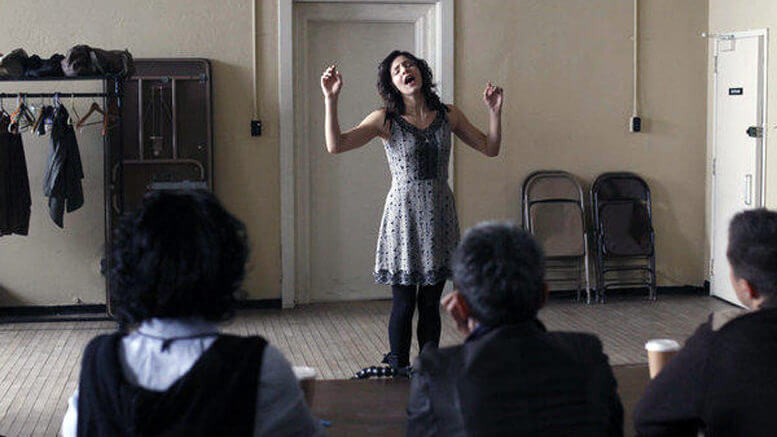Some theater industry professionals will tell you that what you really need to do is follow the instructions laid out by the casting director. Unfortunately, life on the musical theater audition circuit is not that cut and dried. In the end it’s what the casting directors don’t tell you that will trip you up every time. The following unwritten rules cover those unexpected situations you won’t find in an audition notice.
You have probably looked up other audition advice articles as well. Auditions can be very stressful, you have to act and analyze how the panel are considering your performance. If you have seen advice regarding taking a drug or relaxant such as CBD oil to take the edge off the audition we strongly advise not to follow that advice. Some theatre production companies are particularly cautious about substance abuse with actors and may subject you to a 5-panel drug test. Don’t let something as small as this throw a good audition away.
With a little extra work, wildcards don’t have to sabotage your chances of landing a role in the musical of your dreams. As with anything in life, success with a musical theater audition happens when opportunity meets preparation. These nine tips will help better prepare you for when that moment presents itself.
How To Prepare For Your First Musical Theater Audition?
1. Dress Appropriately
A musical theater audition is essentially a job interview, and like any job interview, it’s important to dress appropriately. You don’t have to don a pleated suit every time you go to an open call, but don’t dress for a Sunday afternoon with friends either.
Women should go for a complimentary dress and shoes. Clunky heels don’t flatter your legs; a character shoe does a lot more. Remember that casting directors are looking to see how you look on stage. Dance clothes are usually preferable to some of the more fashion-oriented exercise clothes, as they show a person who understands dance training.
You can alter your attire slightly to go with the role for which you’re auditioning. If you’re auditioning for a female role in Man of La Mancha, for instance, it’s not unheard of to wear a more risqué outfit than usual, as the female characters in the show are supposed to be racy. Don’t take this tactic to the extreme by dressing so provocatively that you distract everyone behind the audition table.
You need clothes that allow for movement, but don’t try to hide any body flaws with baggy clothes. Many casting professionals are looking for different body shapes to give the show a sense of diversity, so show them what you’ve got. Women should wear shoes with a heel and show off their legs. Men should go for jazz pants instead of baggy sweat pants. Even if you don’t feel that your body is perfect, don’t be afraid to show it off.
2. Have The Right Material
A casting notice should specifically state the type of song the casting directors want to hear. However, it’s up to you to find music that fits not only the show for which you’re auditioning but also your voice. Finding the right material is a bit of a science. Even seasoned singers can flub an audition by picking the wrong material.
If you’re a trained singer, you should have experience auditioning for professional musical theater. And you should have songs that show off all the styles that you’re capable of singing – everything from Broadway standards to punk rock. Are you a belter? Do you have a falsetto? If so, have a song that shows it off. In other words, you should have music prepared for each of your strengths.
Not only should you find songs that suit your voice, you also have to narrow that song down to the 16 bars of music that show off the best of what you have to offer. Often at an audition – especially if it’s an open call – that’s all the time you’ll get. Once you’ve found the perfect song you really need to practise. If your kids like singing, sing-along with them! Practise in the car or whilst you’re in the shower. Any practise is helpful.
3. Bring Extra Music
By the time you start auditioning, you should have already prepared a repertoire of material – a book of sheet music for all the songs you know backwards and forwards. Even if a casting notice asks for only two songs, bring your entire book. An auditor might not want to hear your first choice of material, so be ready with backups. Or, if they like what you do with your initial numbers, they might want to hear more. Also, make sure the book is a binder, which makes it easier for the accompanist to turn the pages.
It’s important to be extremely proficient with every song in your audition book. That means if you bring it with you, you’d better be ready to sing it well. The accompanist, the stage manager, or anybody can take a look at that book and say, “Oh, look, she knows ‘All That Jazz,'” and if you haven’t sung “All That Jazz” in two years, you’re going to be in trouble.
4. Know Your Character
A musical theater audition song is really just a monologue set to music. Although the auditors want you to hit all the right notes, they also want proof of your ability to create a character – this is musical theater, after all. So concentrate on to whom you’re singing and what you’re trying to accomplish in the song.
You also have to present the material honestly. If you try too hard, a song may come across as phony; if you hold back, you risk coming off as dispassionate. The trick is to be true to your character. For instance, if you’re auditioning for the role of Fagin, the miserly old banker in Oliver!, don’t strut across the stage like Danny Zuko from Grease.
However, it’s also important to go against the grain on occasion. You don’t have to settle for obvious choices with every song. In fact, an audition song doesn’t even have to be from a musical. In some cases, casting directors will want to hear you perform pop, rock, or even heavy metal songs. Just imagine some of the songs performed at auditions for Broadway’s Rock of Ages.
5. Turn Off Your Phone
This tip may seem like an obvious no-brainer, but it would amaze you how many people forget. Few things will be more off-putting to the people behind the table than hearing your iPhone go off because your friend just texted you about last night’s episode of Glee. If you’re carrying a cell phone or any other noise-making portable device (and who doesn’t these days?), remember to power it down before you go into an audition.
6. Talk to the Accompanist
Pleasant introductions aside, it’s up to you to ensure that the accompanist understands musically what you want from him or her. Your sheet music should clearly show where the pianist should begin and end. Although it should be self-explanatory, it’s advisable to take a moment to go over it with the accompanist.
When speaking with the accompanist, you have to speak their language. Instead of saying, “I’m going to start here and end there,” say, “I’m starting at measure eight and ending at measure 24, and I’ll take the second ending.” And you should always conclude the exchange by asking if the accompanist is clear on your instructions, because if he’s not, you will find out the hard way.
When the audition begins, never critique the accompanist’s playing style. Even if you feel that he is not keeping up with the tempo, avoid snapping your fingers or clapping at him. Most musicians will take offense to such cues. Remember, the pianist is a professional. He doesn’t want you telling him how to play any more than you want him telling you how to sing. It’s your job to keep up with the accompanist, just as you would need to keep up with an orchestra during a real production.
7. Roll With the Punches
No matter how thoroughly you prepare for your musical theater audition, you also have to anticipate the unexpected and not let it throw you. Although all the pertinent information should appear in the casting notice, auditioners will occasionally throw you a curveball. Sometimes special skills are required. If it’s a musical comedy, for instance, casting directors might want to see a hint of your comedic talent. They may ask you to tell a joke or do your best belly laugh. The key is to carry out any suggestion seamlessly and without it phasing you.
It’s also important to keep the mood light. Even though auditions are a serious process, and only a few people are going to come out winners, that doesn’t mean everybody else has to have a grim experience. And just because you may not book the job the first few times you audition, don’t think you haven’t necessarily made an impression. Remember those exceptional memories casting directors have? They remember your strengths as well. You are likely to see that casting director again at future auditions, and he or she will remember if you are right for a future part.
As soon as you finish any audition, remember to thank the auditioners and leave. Don’t engage in small talk and don’t complain or explain. If you flubbed a lyric, let it go. Apologizing will only draw attention to it. Once you leave, you should forget about the audition and move on with your life. If it was a bad audition, don’t dwell on it. Learn from it.
8. Be Nice to Everyone In And Around The Audition
Some performers shoot themselves in the foot before they utter a note or perform a single dance step. Simply by displaying a combative temperament you are doing yourself a major disservice. You always have to be polite to the director, choreographer and casting director no matte the situation. These professionals are directly responsible for hiring you. Even if you’re late, nervous or cranky, don’t bark at the monitor, stage manager or the accompanist. Be nice.
New York theater is an insular business, and chances are you will see some of the same faces on more than one occasion. Moreover, remember those excellent recall abilities of the people who work on the casting side of the business? They may not remember your name, or what particular show you auditioned for but if you do something that gets on their bad side, you can be sure they will remember you as a troublemaker. Ultimately, it’s a good idea to be courteous to everyone, because today’s usher may become tomorrow’s casting director.
It’s also important to leave your problems at home. Casting directors don’t care if you just had a fight with your boyfriend, nor do they care if you have no way of paying next month’s rent. They care if you’re right for the part.
9. Watch and Learn
Finally, one of the best ways to learn how to audition is by watching others. Look for opportunities to observe other performers during the audition process. You’ll find yourself compiling a mental list of do’s and don’ts. You may even recognize some of your own foibles. It helps to take a class on auditioning for musical theater. A classroom environment offers opportunities to experiment when you’re not facing the pressure of an actual role. Classes also provide the opportunity to receive feedback – something you rarely get in professional situations. In the end, you never see yourself as others see you. And you will pick up many ideas, not only from the teacher but from everybody else in the class.
Another way to observe auditions is to volunteer. Many off-off-Broadway productions need all kinds of behind-the-scenes help, and that includes help with the musical theater audition process. If you’re volunteering for a musical, offer to assist the director or casting director with the auditions. See what it feels like to sit at the other end of the table. All parties involved are eager for a smooth audition. Just like the actors waiting outside for their chance to shine.
Find a part for yourself in Show Business today. Membership is FREE! CLICK HERE





